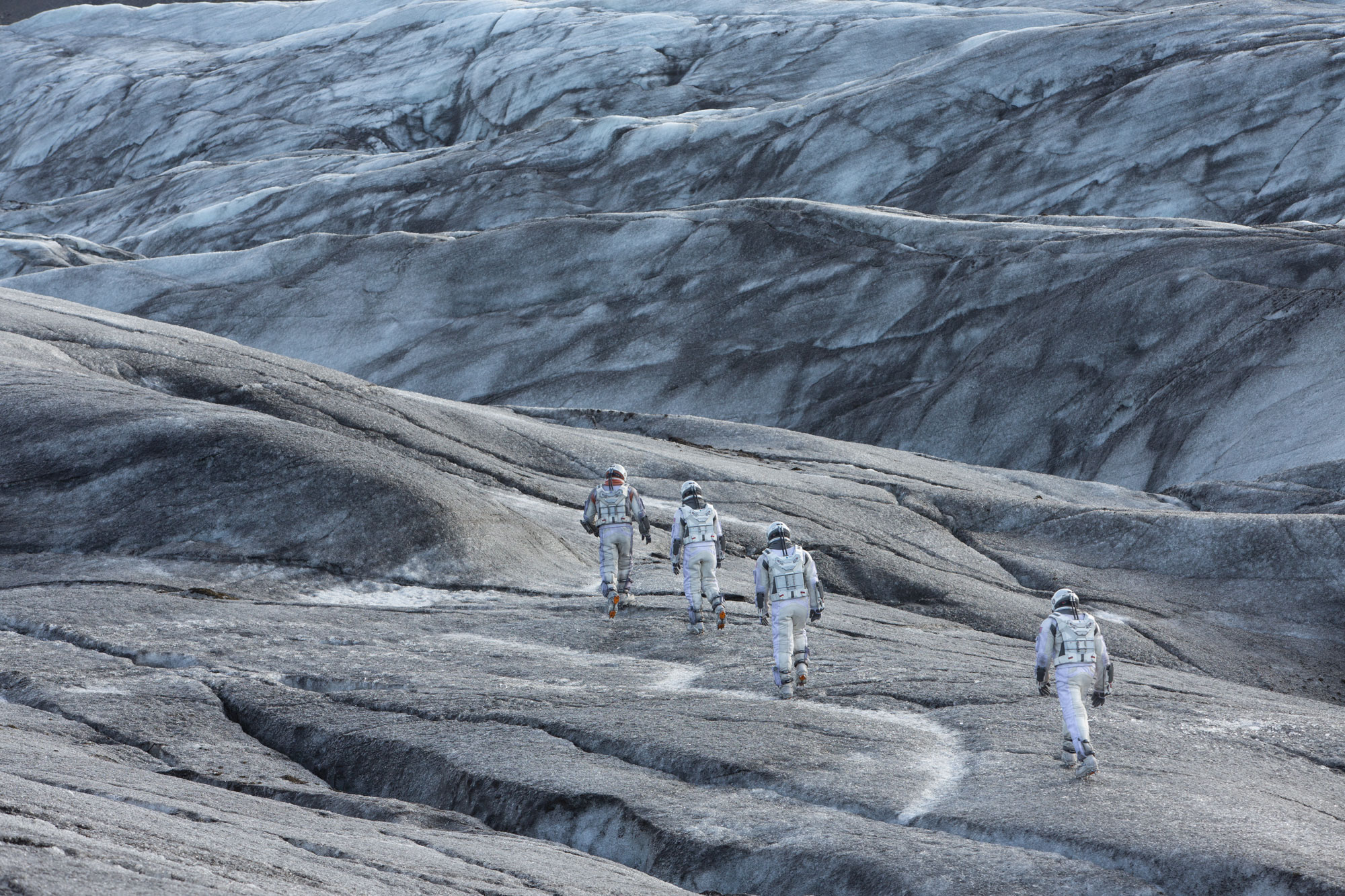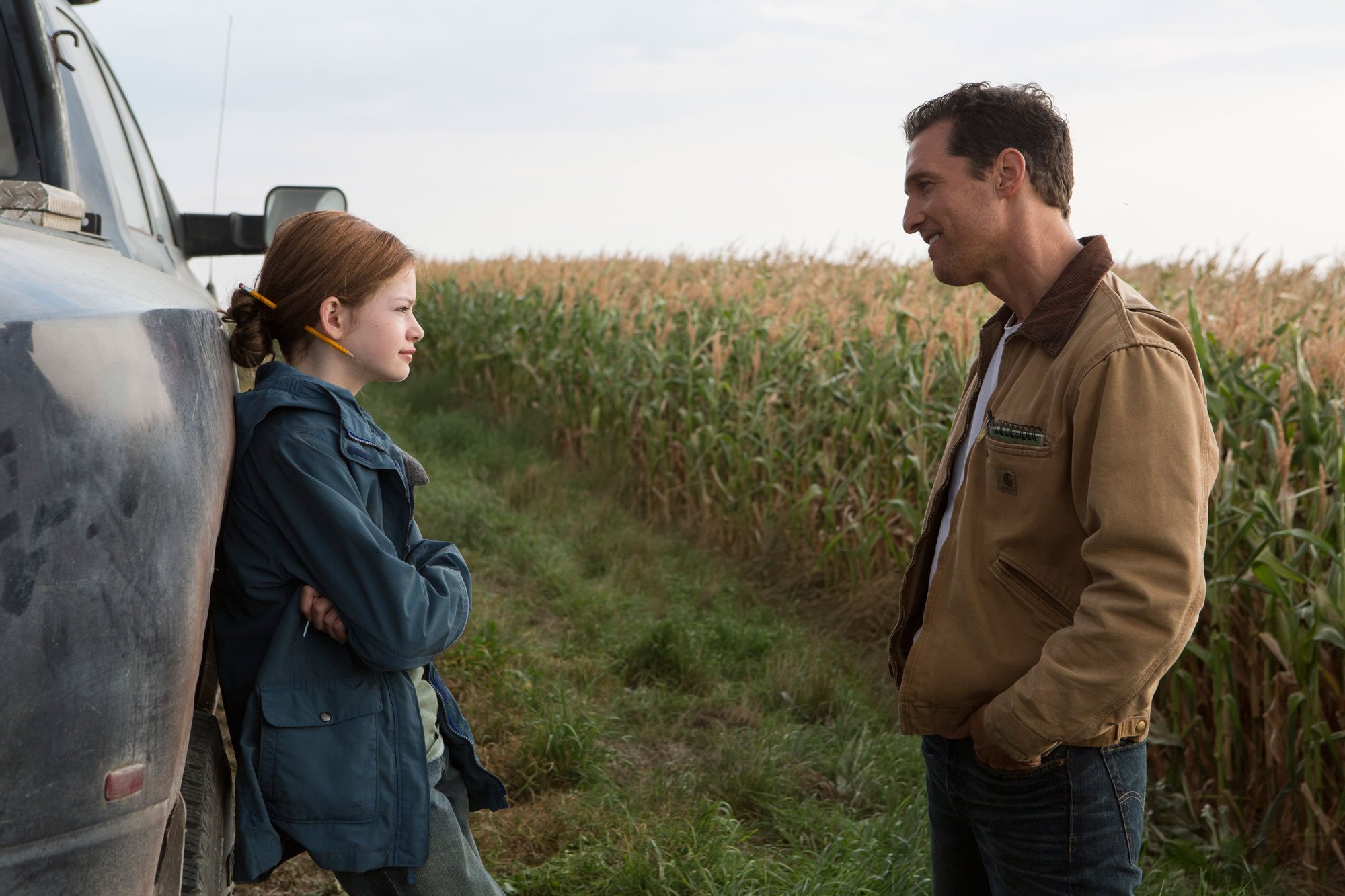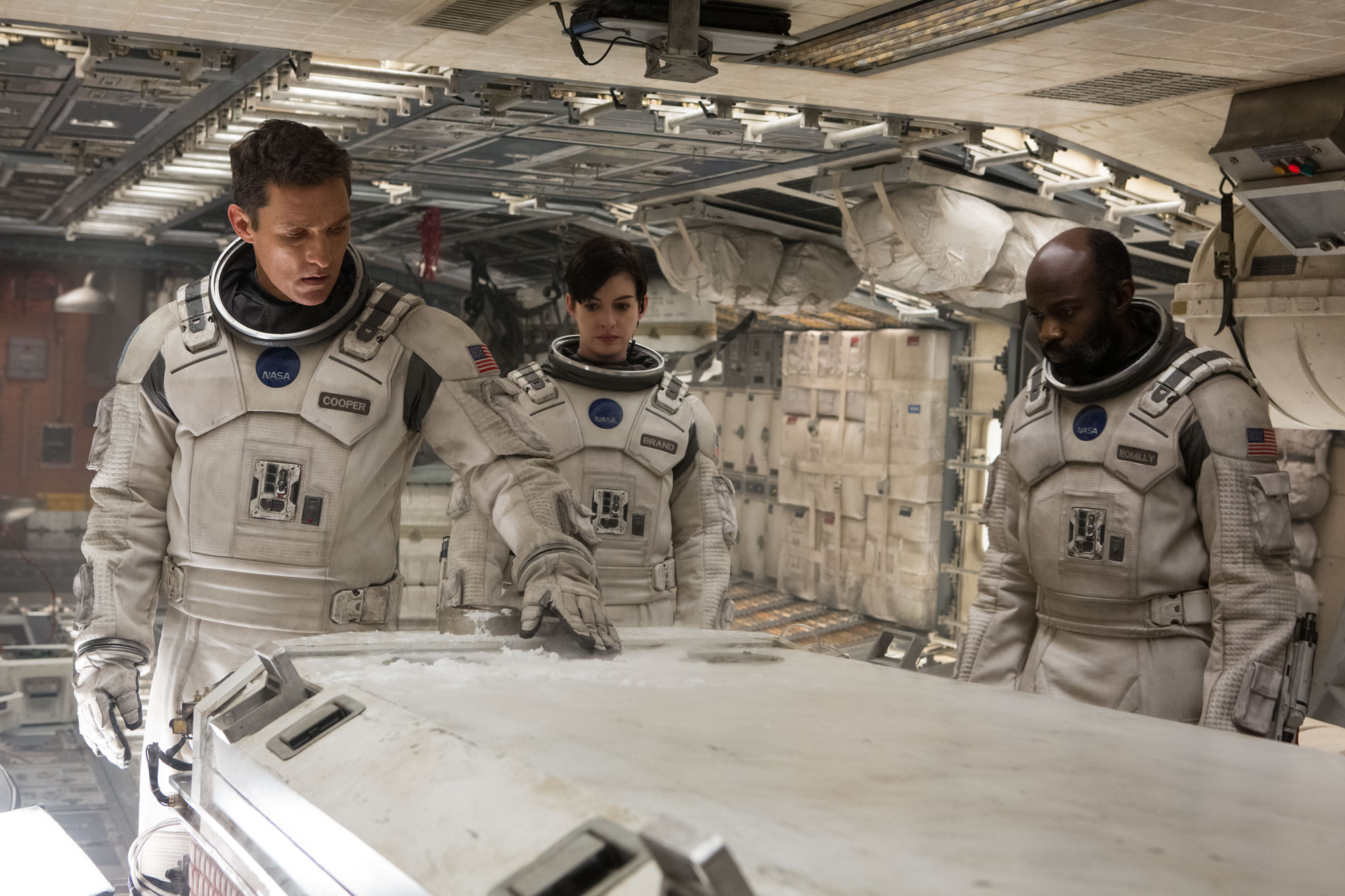Interstellar
Posted by Jae Gibbs on 8th Nov 2014
Christopher Nolan has about a 50/50 success to fail rating for me as an audience member, so I wouldn’t say I’m a fan but I also don’t hate him and at this point I’ve seen all of his movies at least once except his first film, “Following” which due to it’s grainy shaky-cam look gave me a spot of motion sickness. With “The Dark Knight Rises” and “Incepton” still both fresh in my mind, I had very low expectations indeed for “Interstellar”. Thinking that I wouldn’t be seeing it until it was on DVD, I also had nearly no idea what “Interstellar” was about before seeing it, other than Matthew McConaughey and pals IN SPACE!

I’m going
to try to keep this as spoiler-free as possible, but there will be a breakdown
of some of the plot points in the review, so please proceed with caution if you
haven’t seen the picture yet. The whole thing opens with a PBS style
documentary footage, interviewing elderly people who talk of their childhoods,
of farming and of dust. This sets a nice tone and eases us in to the idea of
the Dust Bowl taking over not only the central
Okay, so in the future, “the blight” is wiping out all crops everywhere and Matthew McConaughey’s character, Cooper, is a single father of two and a burnt out aerospace engineer/ pilot-turned-corn farmer. His son is also set to be a corn farmer, but his daughter, played by hands-down the most charming and adorable child actor I’ve ever seen (Mackenzie Foy), Murphy, is just like her dad: stubborn, curious and obsessed with both science and the supernatural. She discovers a pattern in her room that she calls a ghost, but when decoded leads her and her dad on an adventure to find a secret NASA station underground. Here, we meet Doctor Brand (Anne Hathaway) and her father, Professor Brand (Michael Caine), who recruit Coop to go on a mission to save the human race, but it means leaving his kids behind, never knowing when (or if) he’ll see them again.

There are some points I find curious, even frustrating about this first leg of the film. The brother character is under-developed and the mother being absent entirely irks me since we never even see a photograph of her. But it’s a great set-up that hooked me, based mostly on the acting of the core 4 characters, who are not coincidentally all scientists and two matched sets of father-daughter teams. Also, John Lithgow is there on the farm, the put upon grandfather of the kids (father of the deceased mother) who raises them, and he’s always a welcome addition to any cast.
Coop takes the mission, even though his daughter tells him, nee begs him, to stay, even translating one of the messages from her bedroom “ghost” as reading “Stay”, and they part ways under bad terms. The tone of the film shifts slightly for the second act, focusing more on basic human fears of the unknown, of the vast and deadly quiet of space, of time making fools of us all, and of dying alone. Several things are established during this portion that I loved: 1. Love transcends space and time. 2. Nature is not evil and technology is not evil, only humanity is capable of evil, and humanity can overcome this. 3. Time is a function of gravity: this is what Einstein’s theory of relativity is all about—you get closer to more gravity, time slows down in your perception (give or take.). Wes Bentley, David Gyasi and two robot buddies are also introduced and along for the mission during this part, and I enjoyed all of them, even knowing they were most likely doomed by the risky nature of the mission. Because of relativity (which might have been a better name for the film), Coop’s kids age up into adult actors (Casey Affleck and Jessica Chastain, respectively) and we see things unfold both on Earth and on alien worlds in search of a rebirth for human kind.

During the final part of the film, all the twists that have been thoroughly foreshadowed are paid off and we finally are made aware what this movie was really about all along (SPOILERS!)—Time travel, and the idea that love and gravity are the only two things that can physically transgress time-space. Had I known this was a time travel movie going into it, I might have had different expectations. I really like time travel films. This was no exception.
Whether or not you enjoy the movie is probably dependent on two factors: what kind of Science Fiction you enjoy and where you land on the sliding scale of idealism vs. cynicism. I like “soft” to middling sci-fi (think Star Wars more than Star Trek) and am a fairly optimistic, idealistic sort of person, at least when it comes to storytelling and enjoying movies. If that does not sound like you, think twice before going to see this movie. That having been said, it is not a stupid or fanciful thing in my opinion. Everyone’s favorite astrophysicist, Neil Degrasse Tyson even explained that some of the more out-there theories about black holes presented by the film could be plausible but that isn’t really the point of the film. The point of the film is to tell a story that isn’t about space, but about people and about family and humanity. That used to be all sci-fi stories did: give the reader or viewer a moral or take them on a journey that paralleled something from everyday life, but in a fantastical way. This film is very much a throw-back (some may even say it’s a rip-off) of older sci-fi stories, like “2001: A Space Odyssey”, but again, with more romanticism and less fear, or at least fears about different things. Something I really enjoy about the film is that I can give you the ideas and morals that the film makers intended without having to spoil much or any of the main plot; at least, I hope I didn’t spoil too much of it for you.
The acting worked for me, but it won’t for everyone. The dialog too. I liked the score by Hanz Zimmer and found it subtle, but other people said it was overbearing and manipulative. I absolutely loved the characters and their relationships with each other, though the film was long and crowded, it could have benefited from more time spent with Casey Affleck as the adult son or with a clearer focus on the amazing Jessica Chastain (who had better be Carol Danvers, Damn it!), but overall it felt like one of the best sci-fi movies I’ve seen in years. Not because it was good science (or good fantasy, because it made liberal use of both), but because it was a good story about what people need in order to survive. Hint: it’s not just air and water. It’s like Captain Malcolm Reynolds said at the end of “Serenity”: “It’s love that keeps her in the air.”
I give “Interstellar” 5 out of 5 stars. For an alternate take, please read Dave’s review of the film on theNerdBlog.com.
Share:
